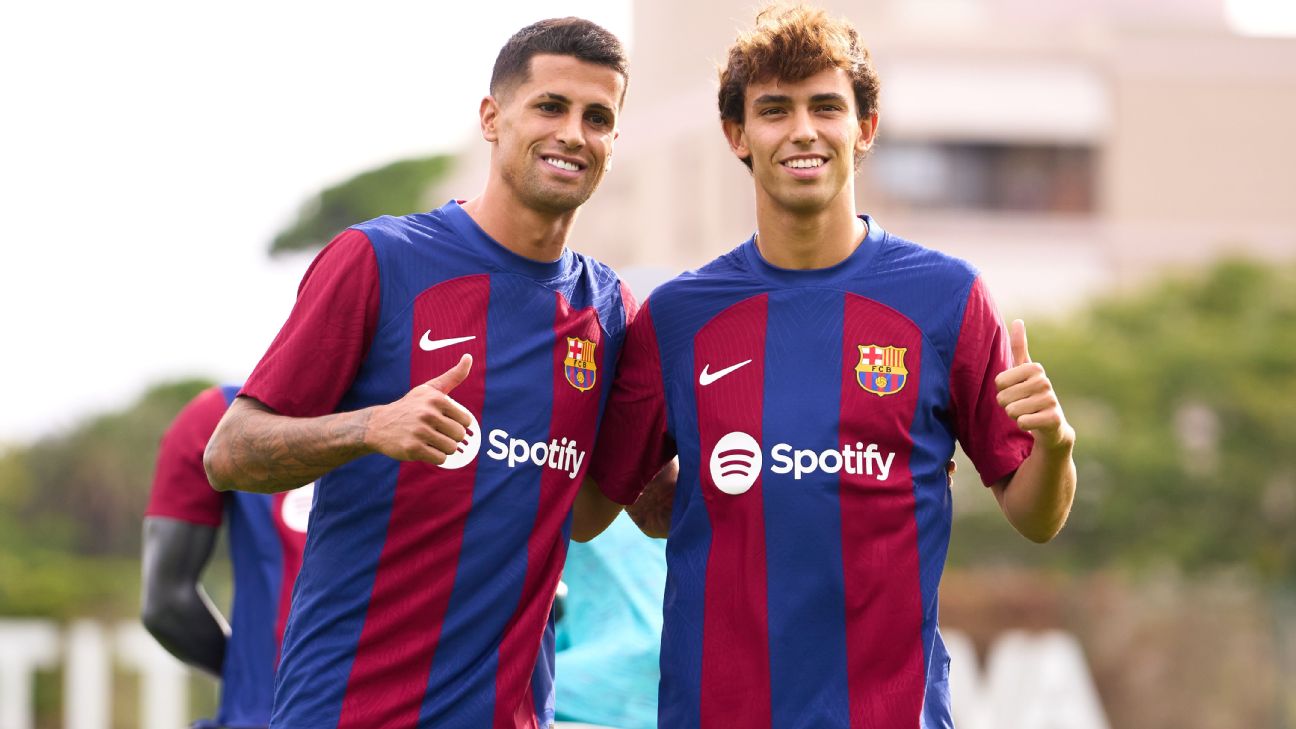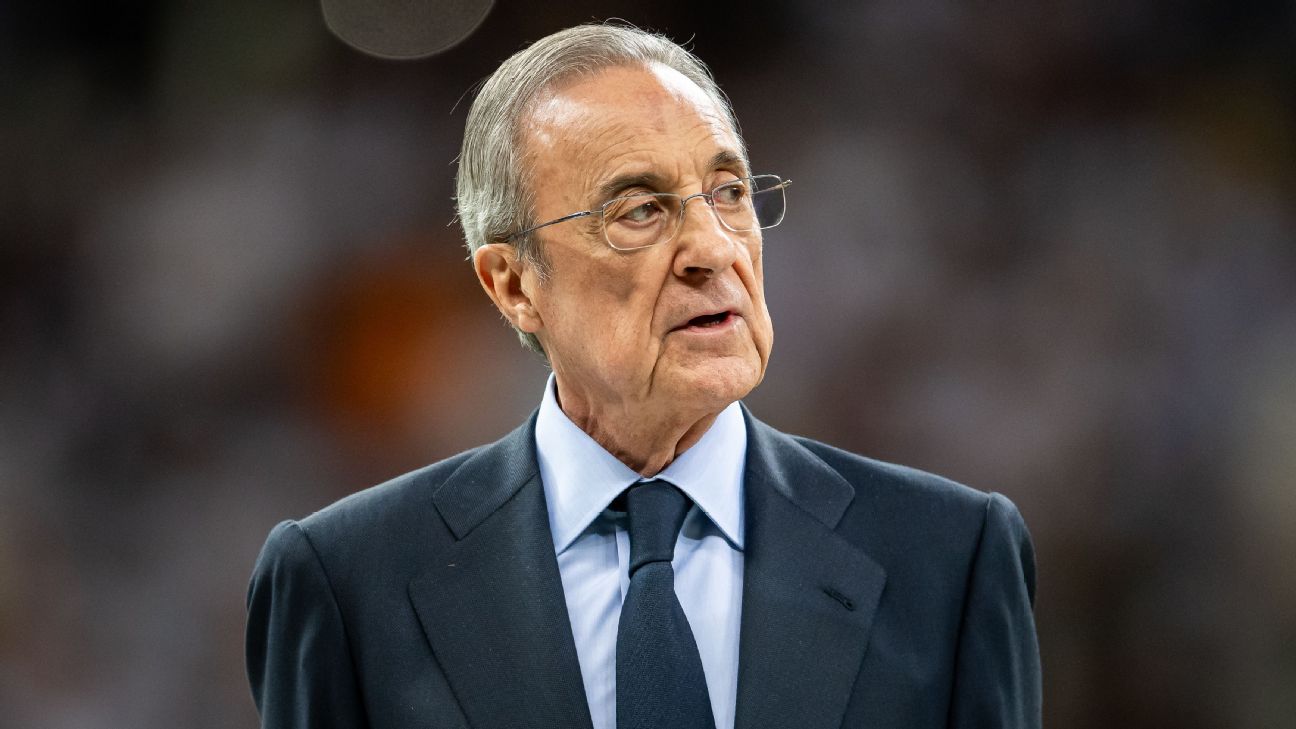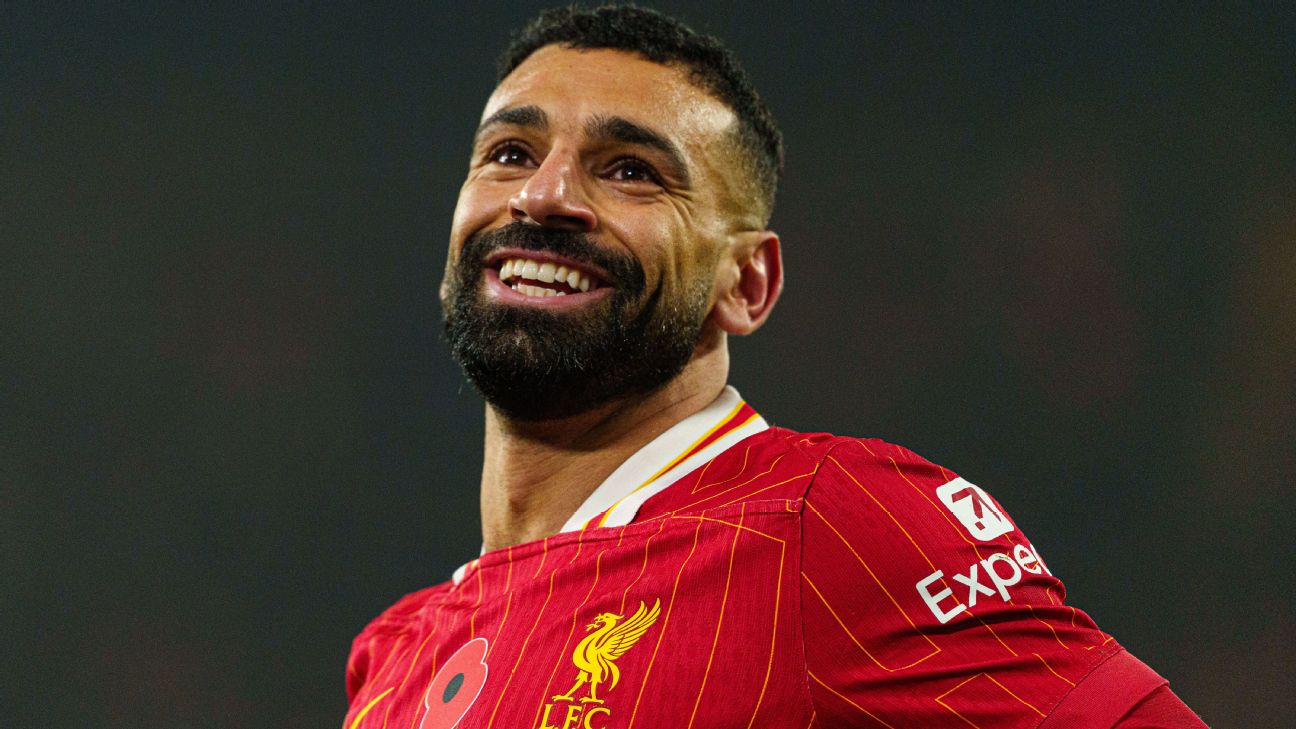As the summer transfer window closed across Europe’s top leagues, LaLiga had its share of surprises, last-minute moves and failed talks. Journalists, fans and staff were kept on the edge of their seat as agents and clubs worked on adding finishing touches to deals. After a busy window, we look at some of the big takeaways across the Spanish first division and what comes next.
– Stream on ESPN+: LaLiga, Bundesliga, more (U.S.)
Barcelona’s positive transfer window
Last year it was all about the palancas (levers). This year, there was palanca upon palanca: one of those companies that bought assets that allowed Barcelona to sign didn’t pay. So another company came and bought that asset, and didn’t pay.
Explanations are needed for something that jars so badly. In the short term, Barca sought emergency measures. The club’s board needed to personally put up a guarantee and rush to get players out: Ousmane Dembélé brought in €50m, Franck Kessié €12.5m, Nico Gonzales €8.4m and Francisco Trincão (remember him?) €7m. Eleven more players went with no return, but with savings. (Jordi Alba and Sergio Busquets, above all).
Right at the end, there was Ansu Fati and Eric García and then Abde Ezzalzouli. There’s sadness in Ansu’s departure, but maybe hope, too: Barcelona will get him back at the end of the season and maybe, just maybe, he can find himself again there. When the dust settles, Barcelona will probably look at this market and think that, actually, they have done extremely well with Oriol Romeu, Iñigo Martínez, Ilkay Gündogan, Félix and Cancelo coming in.
Surprise deals
“We thought this was impossible, given the situation we are in,” Deco said. Most people saw it the same way as Barcelona’s sporting director, not least because it was impossible, or should have been. But with 90 minutes left in the transfer window, there it was: the announcement that they had signed João Félix. Ten minutes later, João Cancelo joined, too.
At LaLiga HQ, where journalists had been invited in to see it all unfold, they were trying to make an event of it. Mostly, it wasn’t working. Mostly this summer, they had watched people go, unable to do anything about it. Now, at last, they had a bit of excitement. Atletico Madrid meanwhile, had finally offloaded a problem, although there may be more ahead.
As the night closed, there was the enjoyably random news that Mariano Diaz, sometime striker, had joined Sevilla. Álvaro Odriozola, another rarely-seen Real Madrid teammate, is heading back to Real Sociedad. And then, to end it all, came a signing that genuinely shocked. RFEF president Luis Rubiales must resign, Getafe president Angel Torres had insisted a week ago; now he had brought Mason Greenwood in.
Gab Marcotti reacts to Mason Greenwood playing for Getafe on a loan.
LaLiga drops down in expenditure
By the end of the window, Spanish clubs had spent €432m on 157 signings. Apart from the two pandemic seasons, it is the lowest figure in a decade. (And that’s in terms of absolute numbers, not real terms: €428m bought you a lot more in 2013 than €432 does in 2023).
Compare that to the Premier League, which spent €2.79bn. In fact, compare it to just about anywhere and it doesn’t look good. A league table of expenditure has Spain down in sixth, behind the Premier League, Serie A, Ligue 1, Bundesliga and the Saudi Pro League. According to the figures put together by Diario AS, of that €432m, €129.5 were spent by Real Madrid. That’s little over €300m spent by 19 clubs. Between all of them, they couldn’t compete with Chelsea, who spent more than €1 billion.
How can LaLiga keep top talent?
Sergio Canales was one of the first to go, heading to Mexico. Real Betis couldn’t afford for him not to. And everyone always knew that Celta midfielder Gabri Veiga would go, but not to Saudi Arabia. “Embarrassing,” Toni Kroos called it. Meanwhile, Sevilla lost Lucas Ocampos to Fulham, or thought they had, only for the deal to fall through.
Nicolas Jackson was off to Chelsea, Pau Torres to Aston Villa and Samu Chukwueze to AC Milan. Villarreal made a net profit just short of €100m. All of which has two readings. Spain keeps finding and/or producing the talent that other leagues want, which is good. But not all of that is a business plan as such; a lot of Spain’s clubs don’t have the financial muscle to keep it, which is bad, and a genuine concern.
Let’s say it again: five leagues spent more. It didn’t used to be this way. And that’s the overall figure. Look at net numbers and LaLiga brought in more money than it spent, with a combined profit of €44.8m. In terms of net spend, Real Sociedad are the only club other than Real Madrid to be in double figures: €14.5m and €125.5m, respectively.
Does LaLiga need to change financial rules?
A lot is made of Spain’s financial controls and how it is responsible for the loss of talent. How the application of those controls, not least the fact that, uniquely, they are applied in advance, makes it difficult for clubs to invest. The league’s counterargument is simple: yes, it stops you spending, but it only stops you spending what you shouldn’t spend, what you can’t afford. As the league’s financial chief once put it: “we have looked into the abyss”; they have seen how bad it is, how bad it could be.
Clubs are being saved from themselves. Yet, there are some disadvantages, and some of those within the game who do agree with the controls believe that the grip should be loosened a little. The fact that the season starts before the market closes is one. And, related to that, because the clubs’ ability to register players or not is so public — it’s listed on the league’s website and seen on the pitch in the opening two weeks — leaves them scrambling to get rid of players any way they can and does make them easy targets for market predators. You can’t register that guy yet? Here, let us take this other guy for a low transfer fee, on a free, or on loan.
João Félix and João Cancelo speak after sealing deadline day moves to Barcelona.
Will Félix come back to haunt Atletico?
“I always had this dream,” João Félix said the next day at a hastily arranged 9 a.m. presentation at the training ground. And in fairness, he had said that earlier in the summer: publicly, and much to the irritation of Atletico Madrid who really didn’t want him any more. In the end, it was all Atletico could do to place him anywhere. A €127m footballer, unwanted, and offloaded for free. And then coming back again in a year. He’ll probably score against them now. On the face of it, this isn’t a deal that seems to make that much sense for Barcelona, and it might be worth him reflecting on why so few clubs are interested. But for zero euros, well, why not? And who knows, maybe it’ll actually work.
Jude Bellingham’s electric start at Madrid
“It’s madness,” Bellingham’s teammate David Alaba said. “I haven’t got words for him any more.” Three matches, four goals, player of the month. (Although it is true that, with the injuries they have suffered, Madrid’s squad does look a little thin).
Atletico’s transfer woes
The market is over, or is it? Manager Diego Simeone admitted he is always scared and rightly so. Saudi Arabia, where the window is still open, is coming for Yannick Carrasco and he wants to go. Which might mean that €12m signing Javi Galán actually plays, which he hadn’t been. César Azpilicueta has impressed. And maybe Samuel Lino and Rodrigo Riquleme, back from loan, will have bigger roles this season. And it is true that there’s a lingering sense of … well, nothing much. No late signing, no extra striker, and no sign of the No. 5 the coach kept asking for.
Darder returns to boyhood club
Asked what he thought when he saw the crowd waiting for him at Palma airport after he had joined Mallorca, finally heading back to the island he left at 14, Sergi Darder said: “That I should go out some other door.” That’s not his scene, but he’s still some player, and you get the feeling it will be fun to watch him this season.
Betis make shrewd signings
The departure of Sergio Canales hurt, a lot. His move to Mexico right at the start of the summer felt like the beginning of the end. Betis had financial problems, could not register all their players — Marc Bartra and Héctor Bellerín had to sit out the opening weeks — and had to open up a share issue to expand their capital base. Joaquín had finally retired, no more smiles.
There were hints too that Manuel Pellegrini saw an unbreakable glass feeling, that nagging suspicion that this year would see them slip. And then Isco came. Registered as a priority before the others, he has played three games and three Man of the Match performances followed.
There was talk of Philippe Coutinho which didn’t happen but then right at the end Abde signed for €7m. And while he played last year, Ayoze Perez is with them now, on a free. Pellegrini certainly has a taste for talented, technical players.
Can Mariano Díaz revive his career at Sevilla?
“I hope the club’s working on it,” Sevilla manager Jose Luis Mendilibar said, not, it seemed, with a huge amount of confidence. All summer, it felt like Sevilla were under threat. Monchi had gone to Aston Villa, an era closing with the departure of a sporting director who was their everything, and it felt like striker Youssef En Nesyri would go, Lucas Ocampos would go, and then even Rafa Mir would go. Oh, and no one would come.
In the end, none of them did leave: the only big sale was Yassine Bounou, who set off for Saudi Arabia. Papu Gomez rescinded his contract and walked away. And then at the last minute, there was another striker. Is Mariano Díaz any good? In truth, no one really knows any more. The footballer who has played 150, 332, 505, 37 and 438 minutes respectively over the last five years at Real Madrid — fewer minutes in five years than many of his teammates played in five months last season — might be about to find out.
Iago Aspas a ‘short blanket’
Rafa Benitez said that Aspas was a short blanket: Celta de Vigo’s best player could cover their feet or their head, but not both at once. If he dropped to create, there was no one up front. If he went up front, there was no one to create. The solution — they hope — will come from Utrecht. Striker Anastasios Douvikas — 22 goals last season — is one of the most intriguing summer signings.
Keep an eye on…
Lucas Boyé to Granada, a signing made swiftly after the unexpected loss of Samu Omorodion. (League rules prevented Atletico from buying Samu and loaning him straight back, so he ended up at Alaves instead). Kieran Tierney at Real Sociedad and Ben Brereton at Villarreal. Kike Garcia, already a cult hero at Alaves. Might Maxi be Maxi again in Cadiz? And could it be that Girona, quietly getting on with being good, is the best place for Pablo Torre? And watch out for Garcia de Haro at Osasuna.



